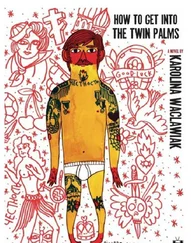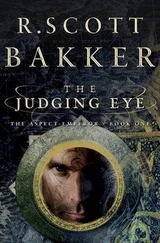“No. It’s upstairs with Father.”
“Oh,” says Ada. She looks at my hands. “Who’s the letter from?”
“I don’t know, I haven’t opened it yet.”
“How is your father?”
“The same.”
“Does he ever come downstairs?”
“Sometimes. He sleeps a lot.”
“I see.” She looks at me with her head to one side, but this time not as if she’s listening for something. “I’ll go and load up the trailer.” She turns and walks into the hall. I wait for the sound of the door opening into the scullery, but instead her head reappears around the corner of the kitchen door. “Two pillows, Helmer,” she says. “Two pillows.” Ada looks funny when she gives you a meaningful look, with that harelip. Then she really does disappear. I turn the letter over and over in my hand. There is no name on the back.

Dear Helmer
Don’t be shocked, I know you looked at the sender first, I always do that when I get letters too, but there’s no reason for you to be shocked by my name. Maybe you don’t even know who I am any more! We haven’t seen or spoken to each other for more than thirty years and that makes writing this letter difficult.
I’ll start by honestly saying straight out that I am finally writing to you because I think that your father has probably passed away by now. Am I right? Your father has always been the obstacle that has stopped me from getting in touch with you. I’m not trying to be nasty about this, and maybe you find it hurtful, if you are sad about your father’s death (if he has died).
And do I really need to write down all the things that have happened to me? Okay, in a nutshell then. I went to stay with relatives in Brabant, where I soon married a pig farmer. We had two daughters and, much later, a son. My daughters left home long ago. My husband (he was called Wien, I know, it’s a bit of a strange name) died last year. My son still lives at home, he just turned eighteen.
I may as well be honest and tell you that I already tried to get in touch with you before writing this letter. Once I cycled out to the farm in the middle of the night and stood there looking at it for a while. I saw you at the bedroom window upstairs (no sign of your father). I was staying at my aunt’s in Monnickendam. (Yes, she’s still alive, she’s eighty-three. Do you know her? She doesn’t know you.) I hadn’t seen her for fifteen years and she couldn’t understand what she owed the honor to. The next day I rang the bell, but suddenly panicked and left in a hurry. I also phoned you and then I heard your voice and hung up like a real coward. But I’m sure you’ll understand that it’s not easy for me to see or hear you. When I heard your voice, I pictured Henk standing there in your hall.
A letter seemed like the simplest solution, but now I’m writing it I find it difficult. Would you mind if I wrote you another letter later? Or shall we talk on the phone? I’ll put my telephone number at the bottom of the letter.
That’s all for now,
Best wishes,
Riet
P.S. There’s something I’d like to ask you.
Like the envelope, the letter is handwritten. No address, just a telephone number. I don’t open the bill.
In the afternoon — on a Saturday of all days-a council cherry picker arrives. One man operates the contraption from the ground while the other unscrews the lamppost cover. I stand behind the blinds in the living room to watch them, I don’t think they can see me. It’s only when they’re finished that I leave my spot at the window. I lie down on the new bed. I’m restless, I have the same feeling in my body as the day I saw that flock of different birds and my sheep stared at me like the members of a firing squad. Sleep is out of the question, all kinds of things keep running through my head, nothing stays put. Painting the living room and the bedroom, pollarding the willows, Jarno Koper in Denmark, the old tanker driver’s funeral, the hooded crow in the ash. Buying the new bed, which I am now lying on, and that should be enough to send me to sleep, but I’m too restless.
A letter from Riet.
On April 19th, 1967 I was halfway through the third term of the first year of my Dutch language and literature degree. I think I was the hardest working student in my year, not because of any ambition or drive of my own, but to show Father. I wasn’t eligible for a grant because he had too many assets. That was what it said in the rejection letter from the Ministry of Education and Science, Board of Study Grants, and he and I both knew what those assets were: land, buildings, cows and machines. “Am I supposed to sell cows to send you to university?” said Father, when I showed him the letter. He didn’t wait for an answer but crumpled the letter up without another word and, since there were no bins to hand, threw it in the kitchen sink. If he’d had a lighter or matches on him, he would have set fire to it. Henk was standing in the kitchen too and didn’t know how to look at me from under his dark eyebrows. Mother retrieved the letter from the sink and tried to smooth it out, then put it in the bin after all.
So I stayed at home, rode my bike to Amsterdam, attended lectures and did all kinds of jobs to pay the tuition fees. When I sat at the kitchen table in the morning bleary-eyed because I had come home late the previous evening after unloading a delivery truck at a large department store, Mother would sometimes ask me what I got up to in Amsterdam — Amsterdam, the city you were better off avoiding. She didn’t actually have a clue what to ask me, but at least she tried. Until that 19th of April, Father might have asked me three times how many big words I’d learned now, without waiting for an answer before resuming his conversation with Henk. Conversations about cows that had gone dry, yearlings that needed moving or other farmers in the neighborhood. Things that really meant something. To him and to Henk.
Henk was the farmer. Henk was Father’s son. What he was supposed to make of me or what I was supposed to make of myself were questions he could ignore.
And Henk had Riet. Until December 1965, when he met her in a pub in Monnickendam, Henk belonged to me and I belonged to Henk. I was in the same pub and that was a source of some confusion for Riet. It was Christmas Eve, the night out for people who didn’t attend Midnight Mass. Henk got talking to her and, as the evening progressed, they slid further away from the group that had started the evening together, the group of farm boys I was left with. Henk was facing away from me. I could tell from the back of his head that he was talking nineteen to the dozen, while now and then over his shoulder Riet glanced at me with a bewildered look in her eyes. She was the most beautiful girl I had ever seen. He talked, I was silent, it was a typical Henk and Helmer evening, and not the other way round. We were eighteen and still looked as alike as two lambs, but then from different ewes, and after that Christmas Eve I was left behind, alone.
Riet got her driver’s license at the start of April. On April 19th she wanted to show Henk that, despite what he thought, despite what so many men thought, she hadn’t passed the test because of her smile. I’d had a philology lecture that afternoon and rode my bike home. It was blowing from the south-west, a tailwind, my coat wasn’t zipped up.
Mother was sitting in the kitchen, alone. “Henk’s dead,” she said.
At Murderer’s Breach, between Edam and Warder, Riet went off the road because a car coming from the other direction didn’t pull over. The car slid down the dyke, rolled and landed neatly, the right way up, in Lake IJssel. Henk was knocked out, the passenger door was twisted and the roof on his side was dented. Just there, the water was deeper than most places, perhaps because of the flood that once washed away this section of dyke, creating the lake called Murderer’s Breach on the inland side. Even with the help of the driver who hadn’t given way, Riet was unable to get him out of the car. The car, which wasn’t winched out of Lake IJssel until the next day, was Father’s dark-blue Simca.
Читать дальше













